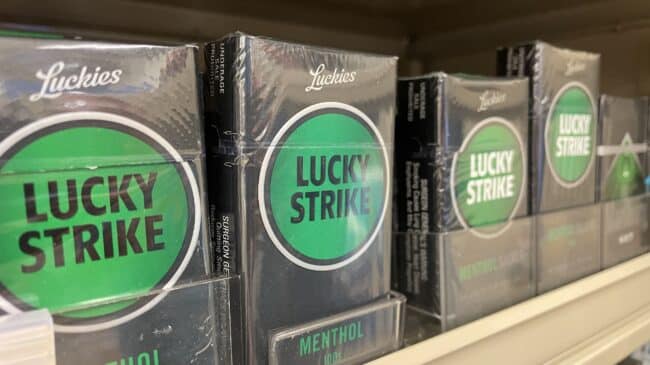Unsurprisingly, crime was a dominating theme of New York Gov. Kathy Hochul’s recent State of the State address. But tucked away in the 276-page State of the State book is a plan to throw New York’s criminals a fresh business opportunity in illicit markets. Gov. Hochul wants to ban all flavored tobacco products, including menthol cigarettes, along with a hike in the cigarette tax.
New York already enjoys the dubious honor of having the highest rate of illegal cigarette smuggling in the country. More than half of all cigarettes smoked in New York come from smuggled sources. The black market sales cost New York an estimated $1 billion dollars a year in tax revenue, according to the Tax Foundation.
Banning menthol cigarettes would put rocket boosters under the illicit tobacco market and reduce the state’s tax revenues. That’s what happened when Massachusetts banned flavored tobacco. One year after Massachusetts’ 2020 ban on menthol cigarettes was implemented, nearly 30 million fewer packs of cigarettes were sold in the state, Reason Foundation’s Jacob James Rich found. But, as smokers sought their preferred products elsewhere, 33 million additional cigarette packs were sold in bordering states than were sold the year before Massachusetts’ ban.
There’s no doubt the governor has been sold on good intentions and the virtues of prohibition. Advocates claim that menthol cigarettes are more addictive, easier for kids to start using, and harder for smokers to quit. But none of these claims are true.
Research shows menthol smokers tend to start smoking later in life and smoke fewer cigarettes per day than non-menthol smokers. States that have higher rates of adult menthol smoking relative to non-menthol smoking actually have lower youth smoking rates. Research from Vanderbilt University Medical Center, published in the Journal of the National Cancer Institute, found no statistically significant difference in successful quit rates between menthol and non-menthol smokers. There was also no difference in the quit rates between Black and white smokers.
Supporters of prohibition claim a menthol ban is needed to tackle smoking in the Black community because the majority of Black smokers choose menthol products. But the Black youth smoking rate in New York is just 4.2%, while the white youth smoking rate is 4.4%. For adults, white New Yorkers are the most likely to smoke at 12.9% compared to the 11.3% of Black New Yorkers who smoke. Given menthol and nonmenthol cigarettes are equally toxic, it’s odd that one should be singled out over the other. Gov. Hochul isn’t advocating for banning products preferred by the largest group of smokers in the state — white New Yorkers.
It’s also a sad irony that Hochul is pursuing this policy when New York City was where Eric Garner was pointlessly killed by police during an arrest for selling untaxed cigarettes in 2014. Last year, the mothers of Garner and Trayvon Martin, and George Floyd’s brother pleaded with the Biden administration not to ban menthol cigarettes nationwide.
Yet supporters of menthol prohibition frequently cloak the ban in the language of equity. It’s an eccentric argument to claim that banning sales of cigarettes favored by Black smokers while the preferred choice of white smokers remains legal is the most equitable policy when they smoke at similar rates. There are uncomfortable tinges of the government’s unjust sentencing differential that hurt minority communities by mandating harsh sentences for crack cocaine and lighter sentences for powder cocaine, which had disparate use rates but similar risks, just like menthol and nonmenthol cigarettes.
Few issues unite conservatives like Grover Norquist of Americans for Tax Reform with progressives like the Rev. Al Sharpton and the American Civil Liberties Union, but opposition to menthol bans is one of them. Whether viewed through the lens of individual choice or social justice, Hochul’s proposed prohibitions can be relied upon to unite a diverse coalition of opponents.
Gov. Hochul should abandon the proposed ban. Youth smoking is at its lowest rate in decades and has almost disappeared in the state. With safer nicotine alternatives making traditional smoking increasingly obsolete, public health can continue to improve without a menthol ban that would surely bring negative racial justice implications and usher in criminal punishments that would disproportionately impact New York’s minority communities.
A version of this column first appeared in the New York Daily News.

